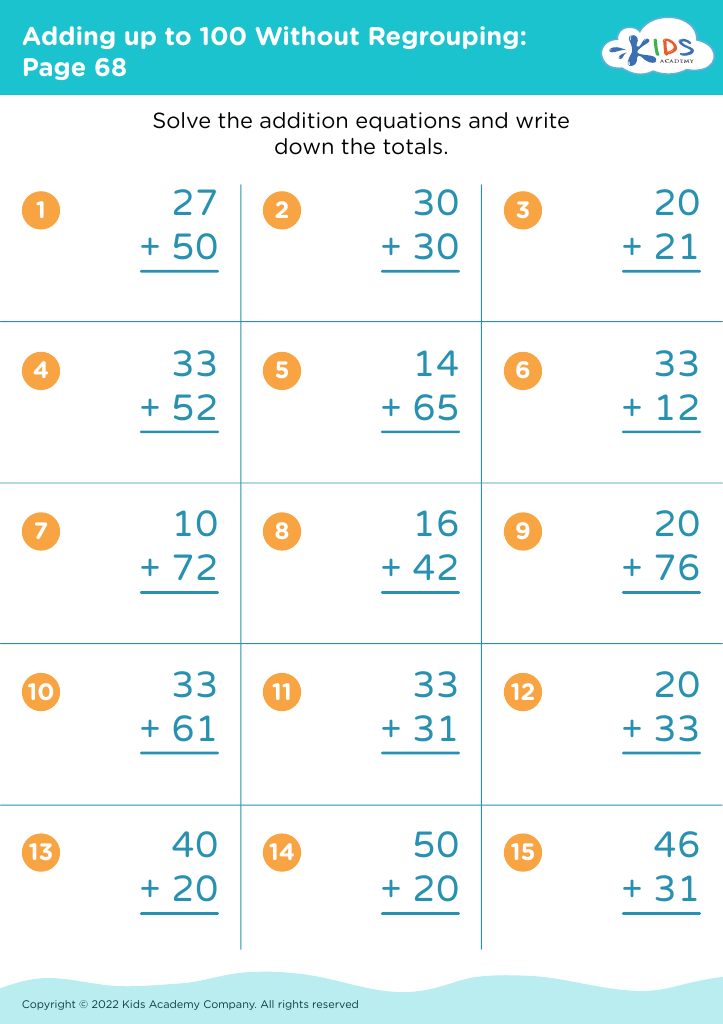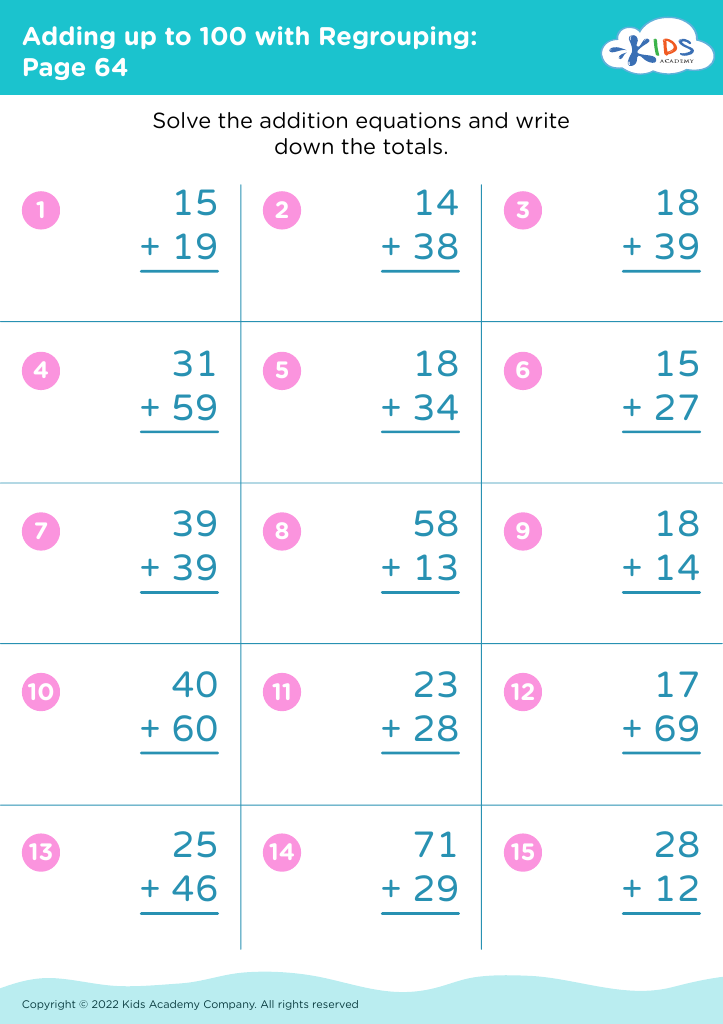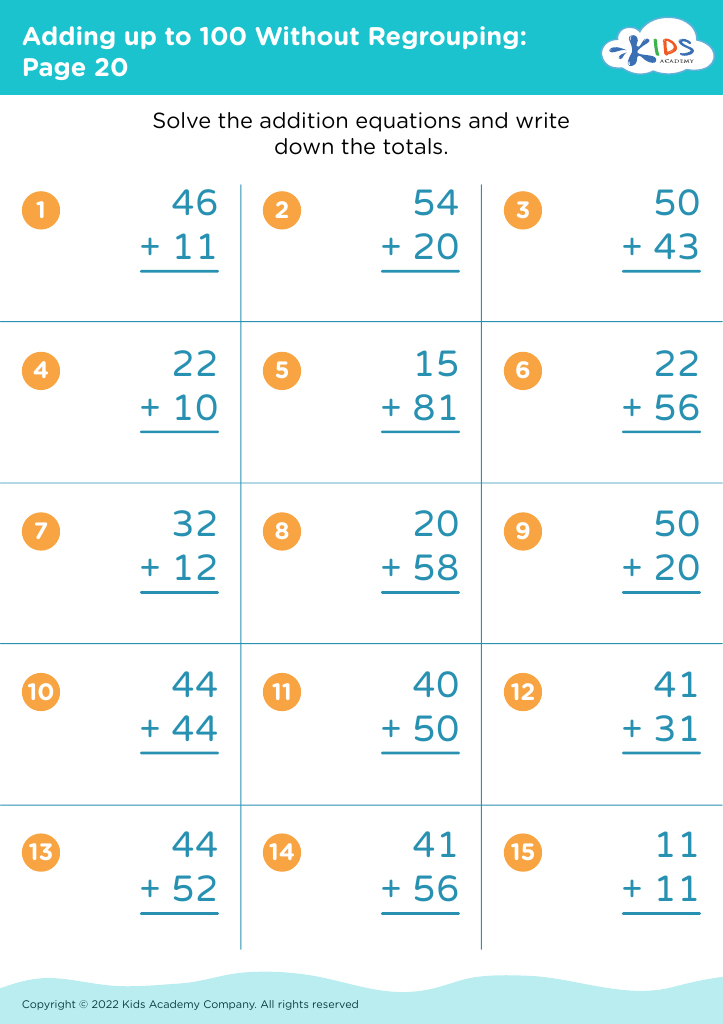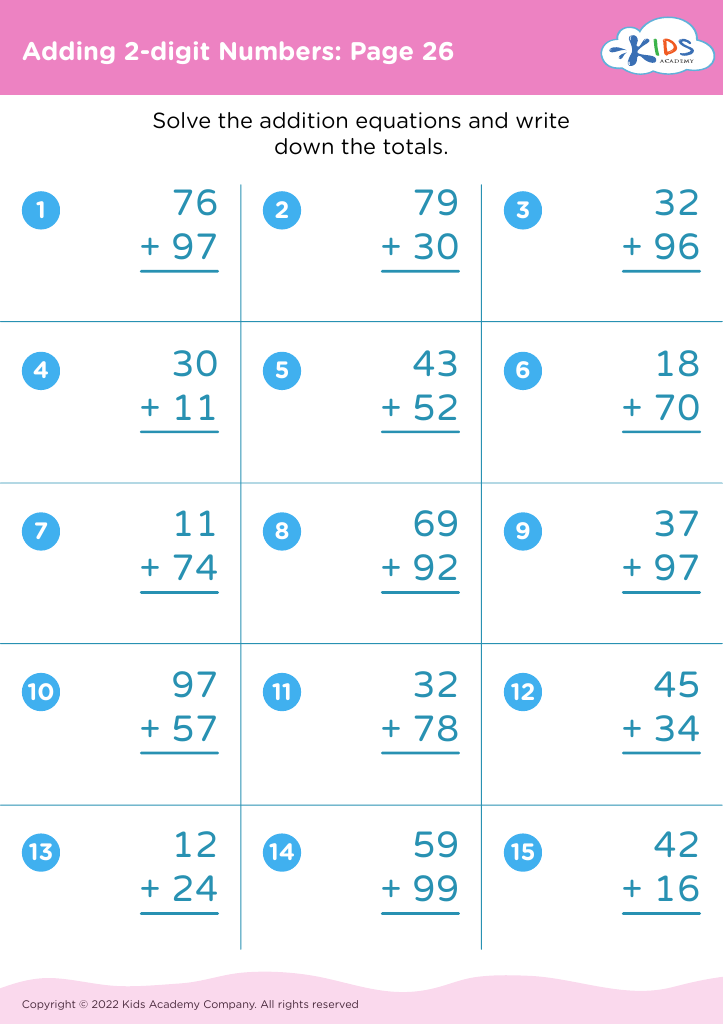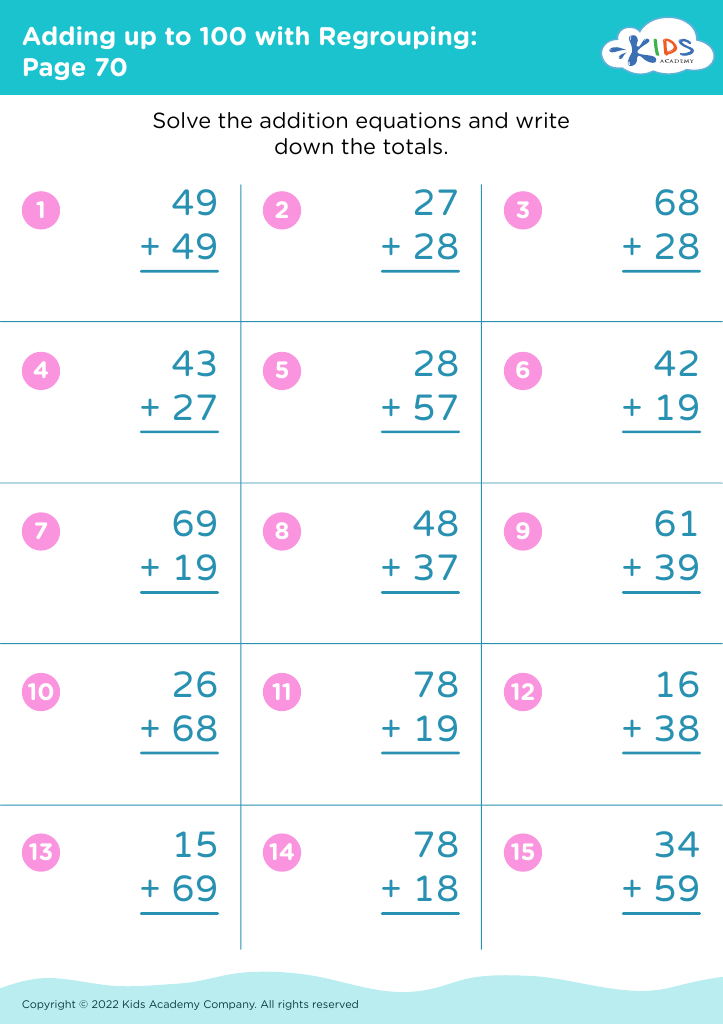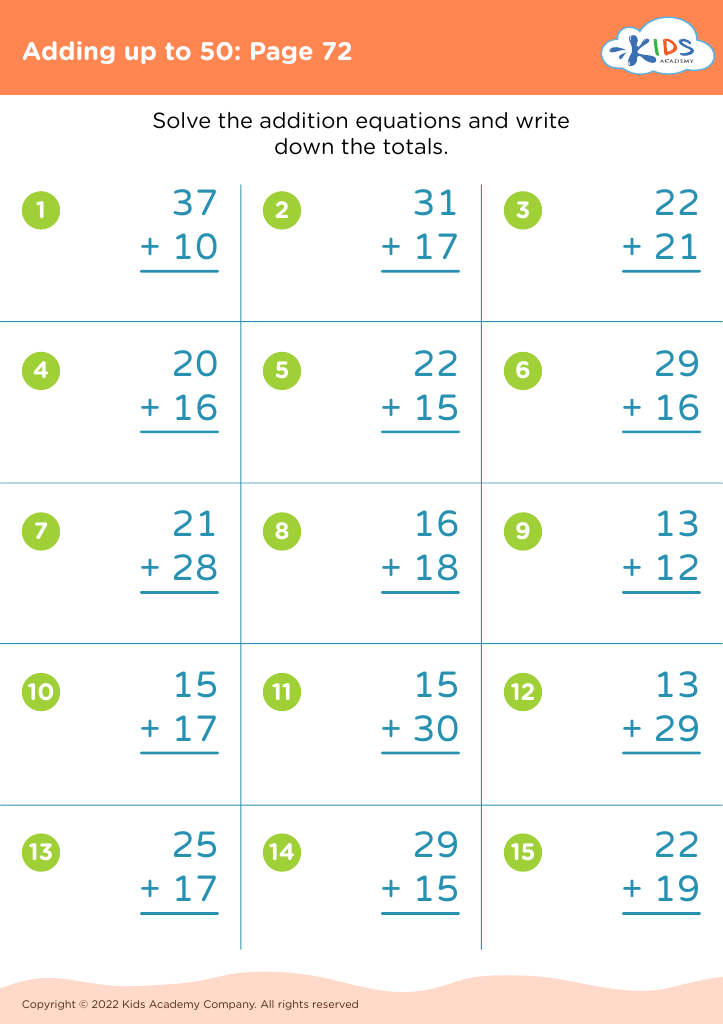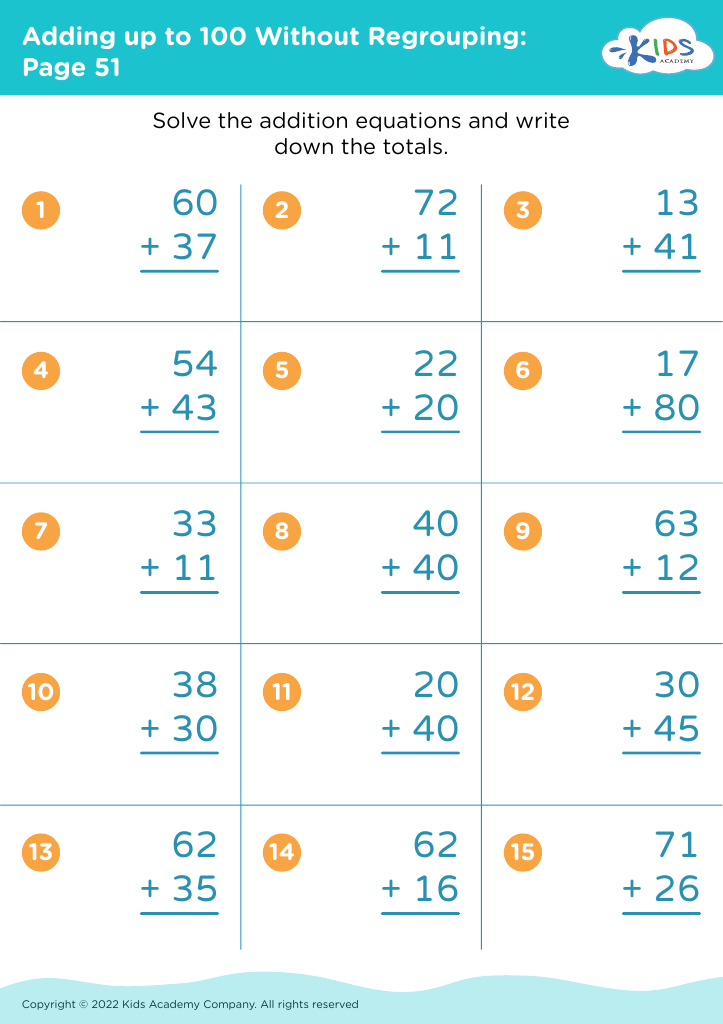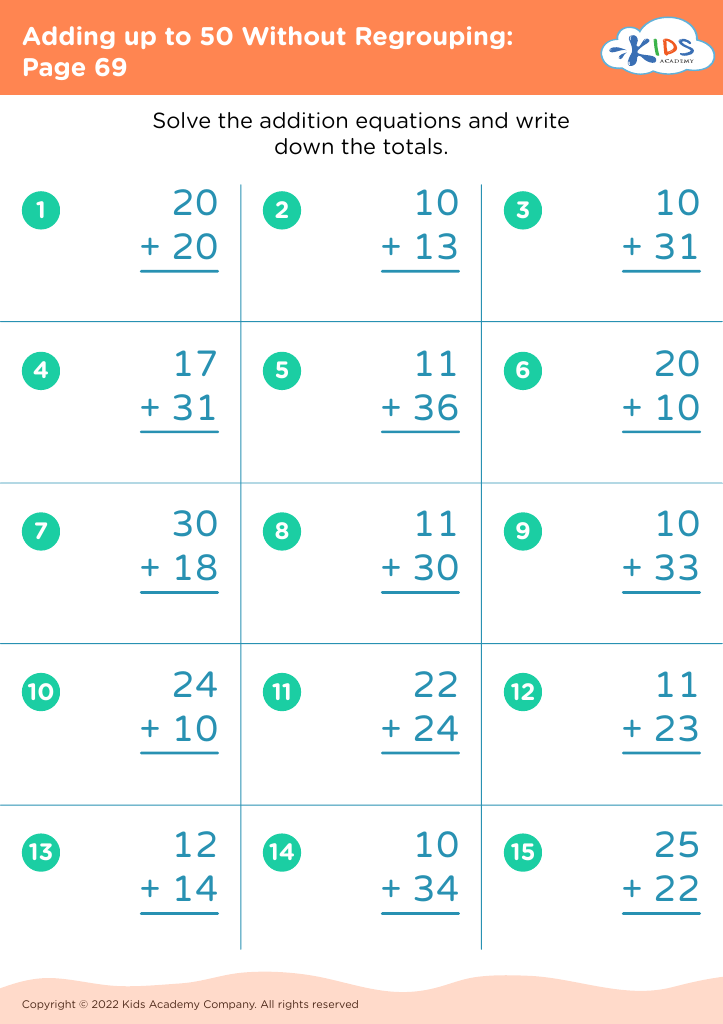Understanding multiplication Math Worksheets for Ages 4-9
31 filtered results
-
From - To
Explore our "Understanding Multiplication Math Worksheets" designed specifically for children ages 4-9! These engaging worksheets help young learners grasp the concept of multiplication through colorful visuals and interactive activities. Tailored to promote a foundational understanding, our resources combine fun games and clear explanations, making math enjoyable. Kids will practice multiplication through arrays, groups, and simple word problems, reinforcing their skills at their own pace. Ideal for both classroom and home use, our worksheets ensure a positive learning experience while building confidence in math. Dive into the world of multiplication and watch your child excel with our thoughtfully crafted materials!
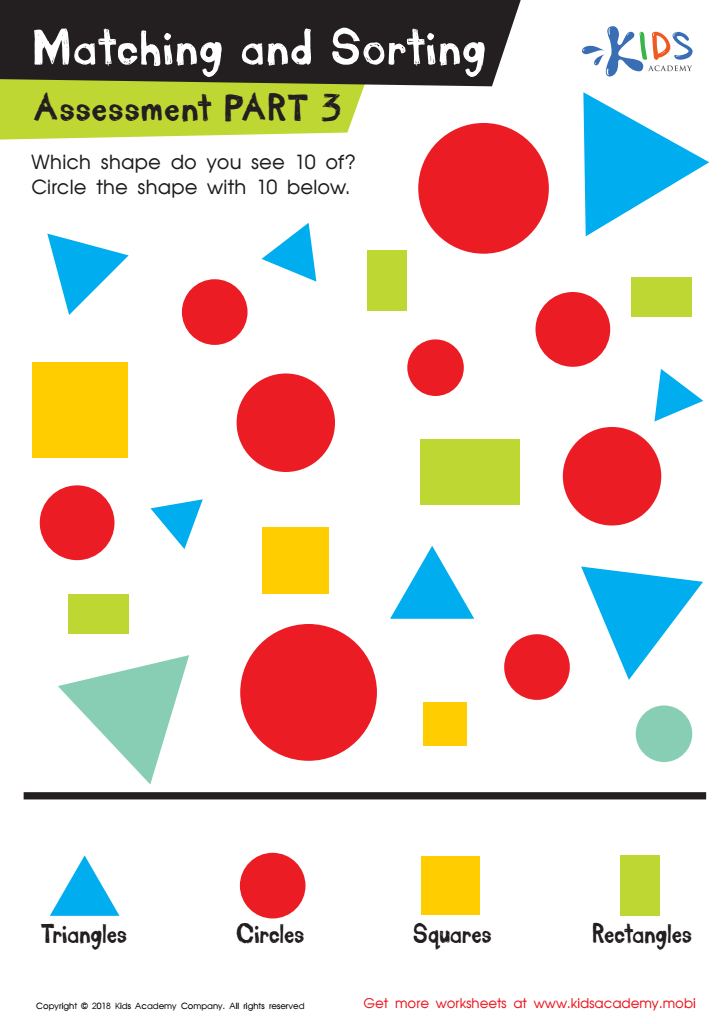

Matching and Sorting for Kindergarten: Assessment 3 Worksheet
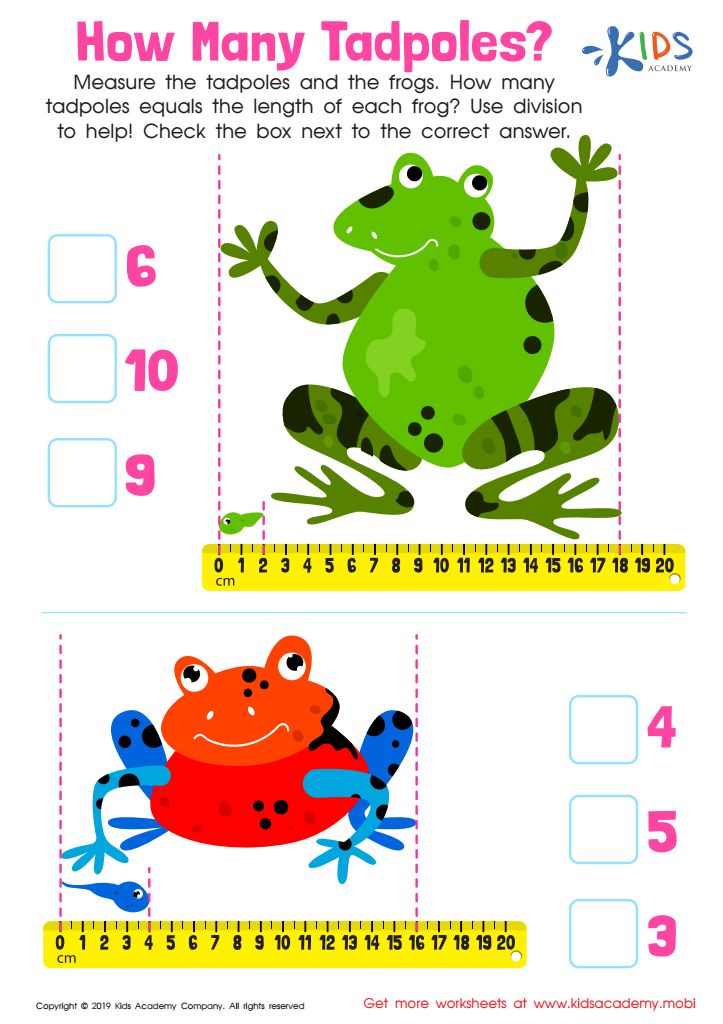

How Many Tadpoles Worksheet
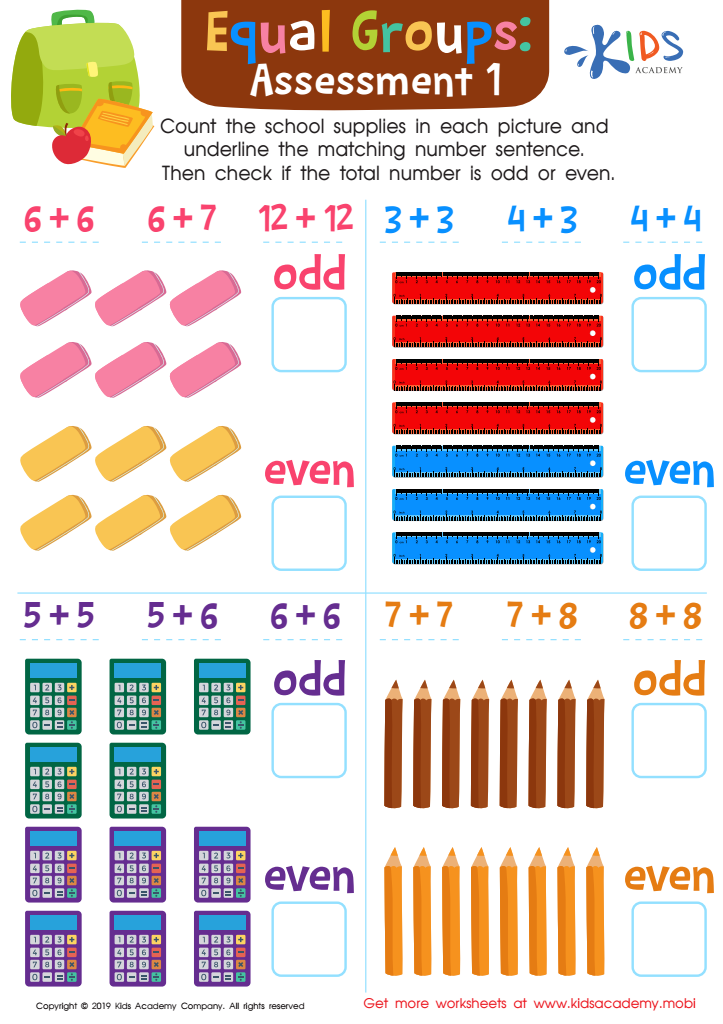

Equal Groups: Assessment 1 Worksheet
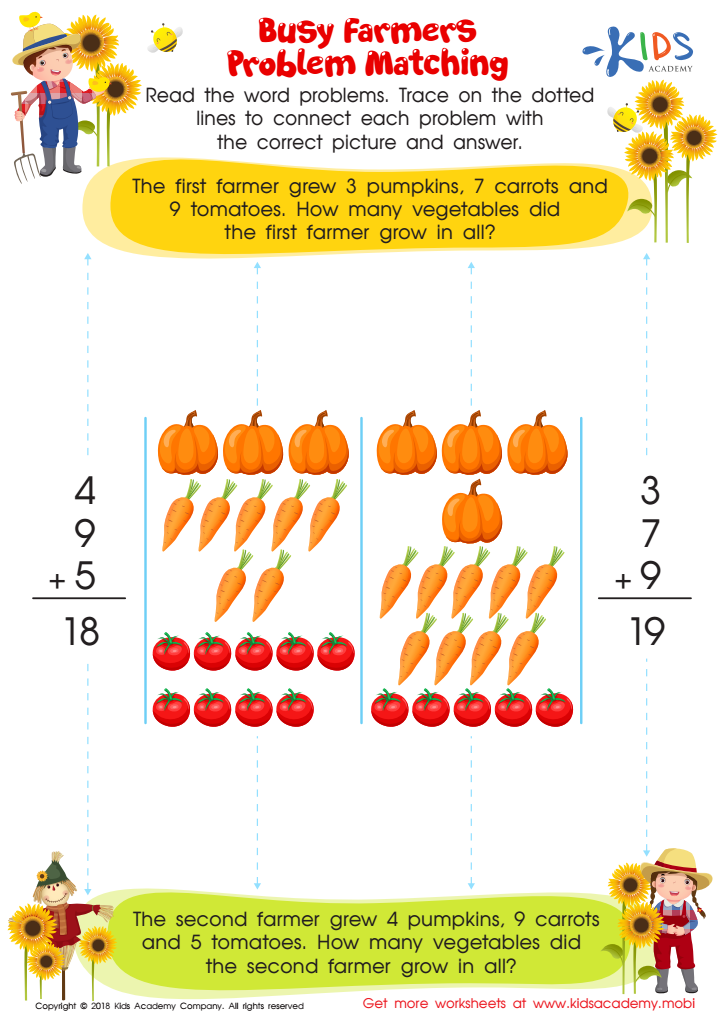

Busy Farmers: Problem Matching Worksheet
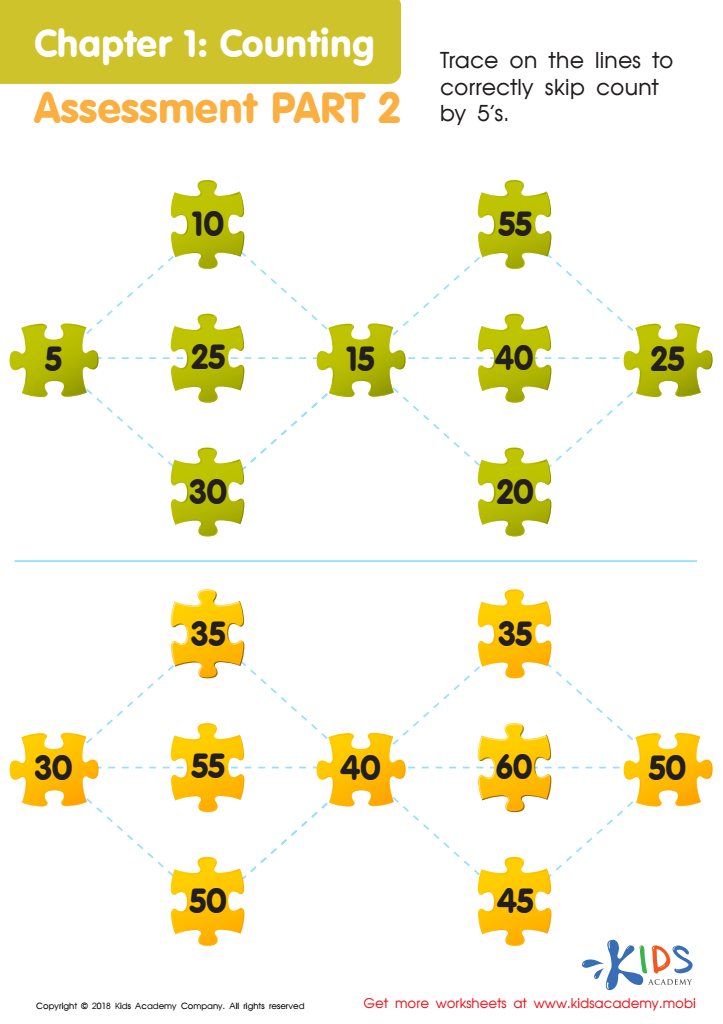

Counting: Assessment 2 Worksheet
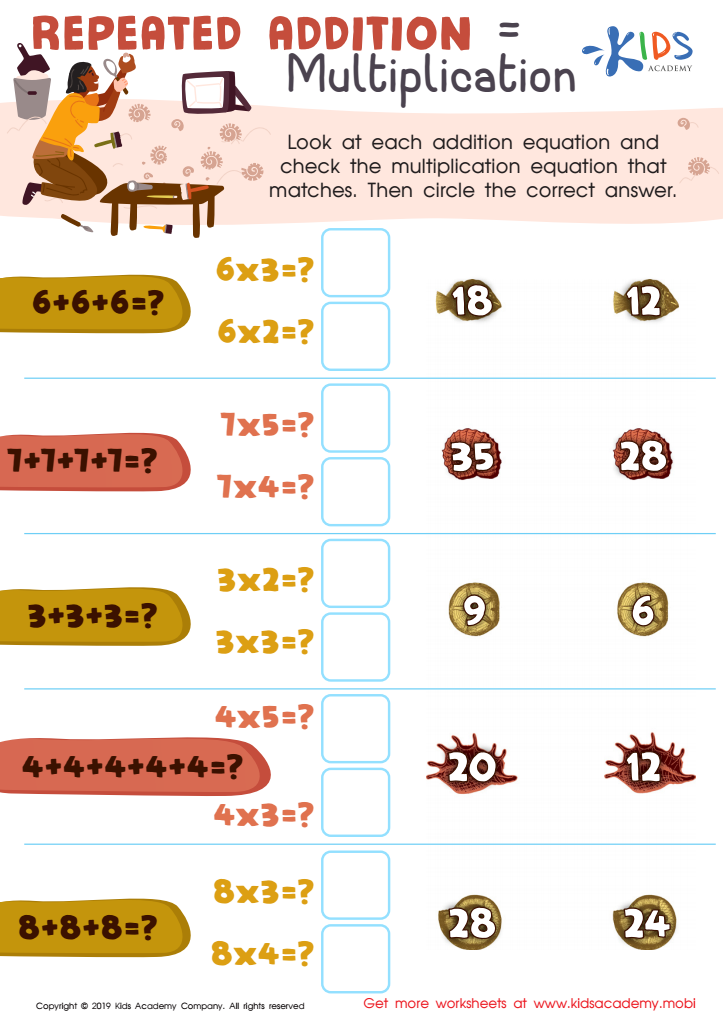

Repeated Addition = Multiplication Worksheet
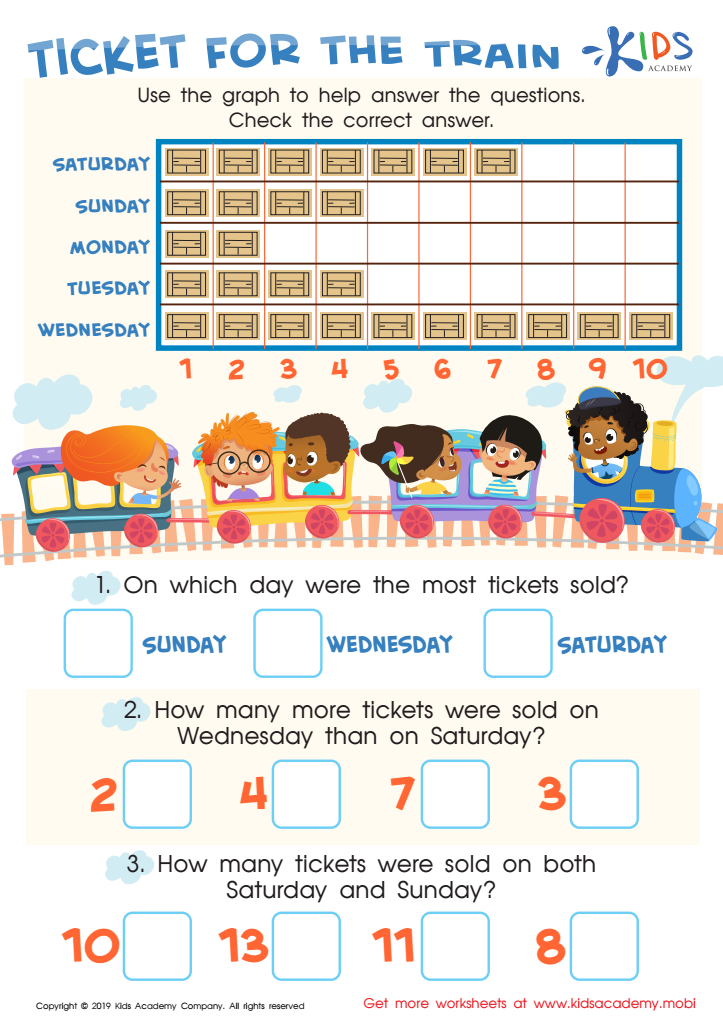

Ticket for the Train Worksheet
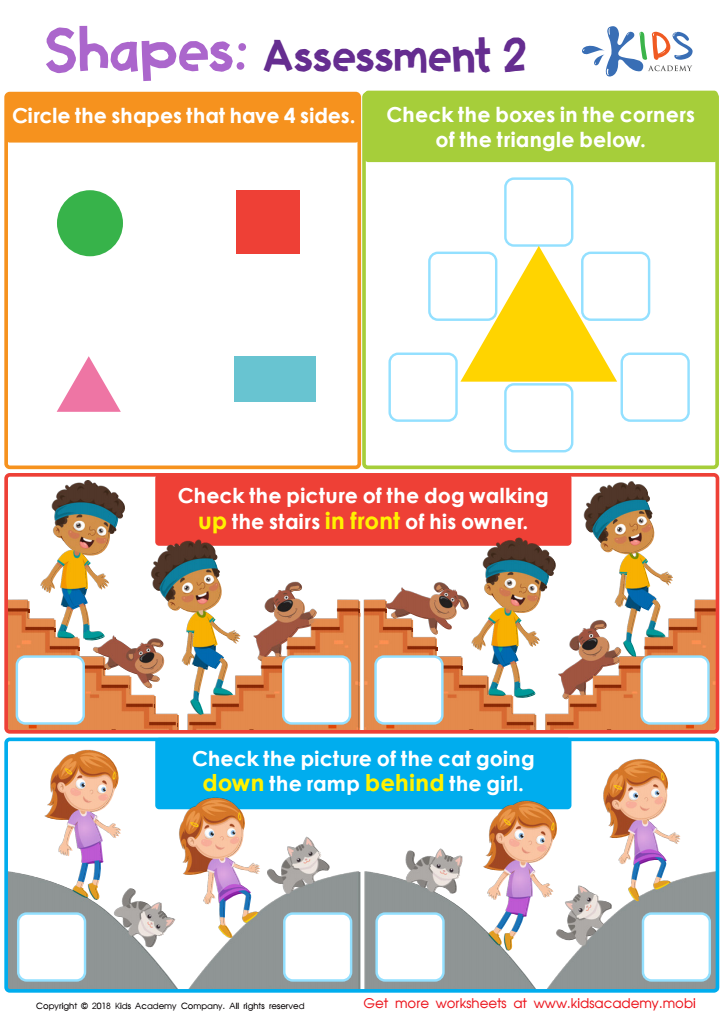

Shapes: Assessment 2 Worksheet
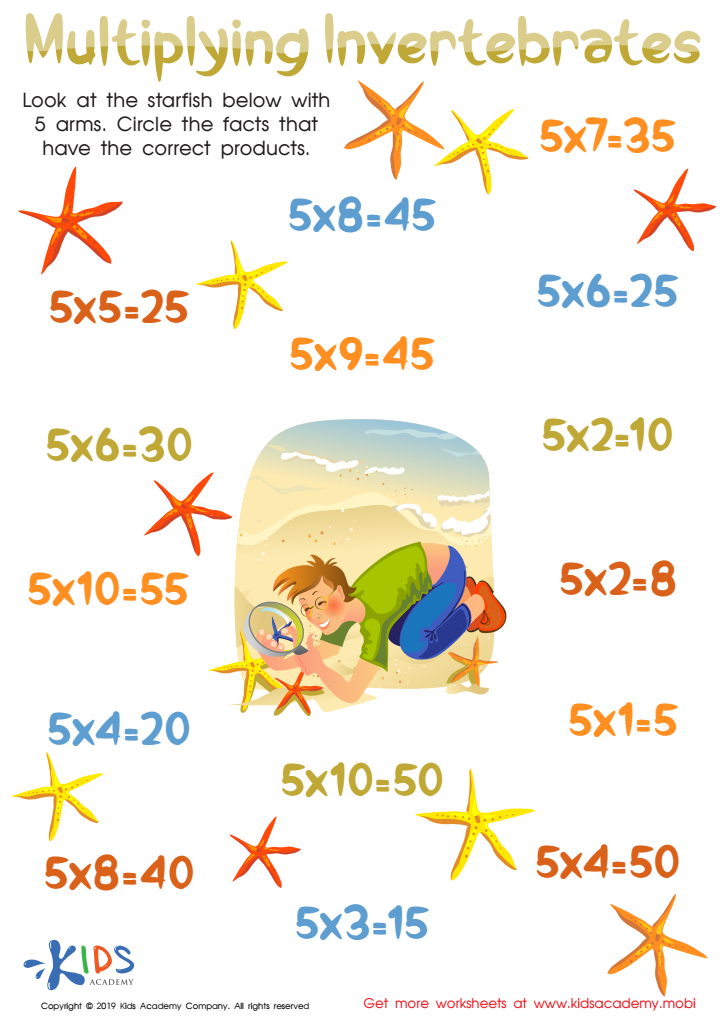

Multiplying Invertebrates Worksheet
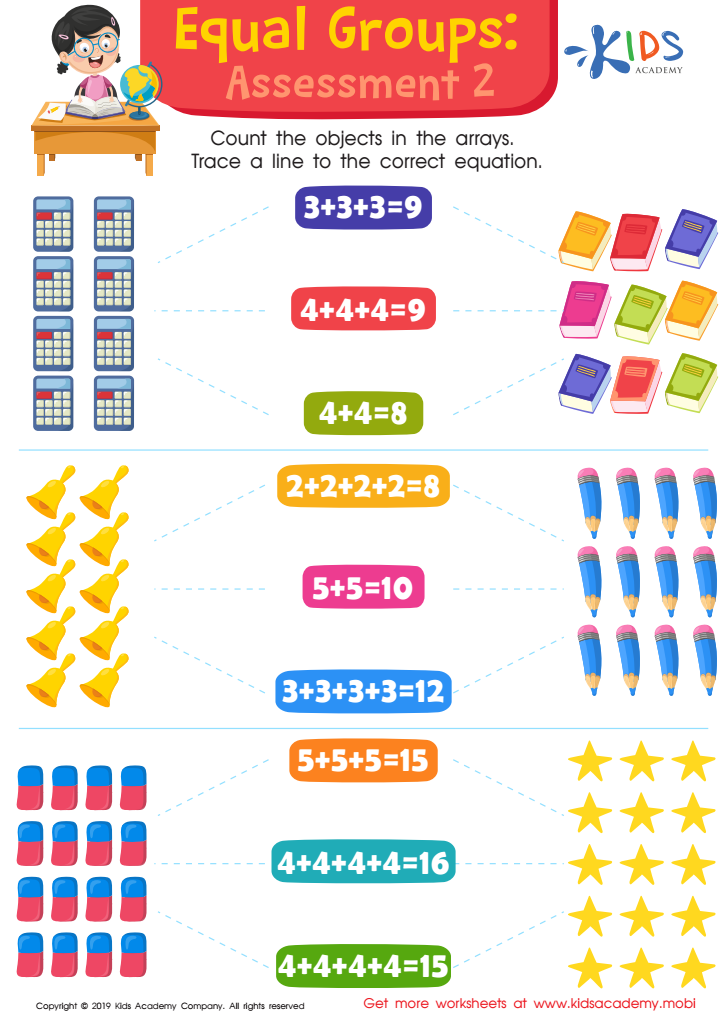

Equal Groups: Assessment 2 Worksheet
Understanding multiplication is crucial for children aged 4-9 as it lays a strong foundation for their mathematical development. At this age, children are developing critical thinking skills and a conceptual grasp of numbers. Teaching multiplication early fosters numerical fluency, enabling them to solve problems more efficiently.
For parents and teachers, cultivating an understanding of multiplication aids in creating a mathematical mindset. It allows children to make connections between addition and multiplication, reinforcing their overall arithmetic skills. This understanding extends beyond simple computation, leading to success in more advanced topics like division, fractions, and even algebra later on.
Moreover, grasping multiplication concepts enhances children's confidence in their mathematical abilities. A solid foundation helps reduce math anxiety, which can persist into later education. Engaging children in multiplication through playful and interactive methods makes learning enjoyable and memorable.
Overall, a firm grasp of multiplication helps children develop logical reasoning, problem-solving strategies, and perseverance. Parents and teachers play a pivotal role in nurturing these skills early on, quieting future challenges and ensuring that children approach math with curiosity and enthusiasm. Investing time in helping children master multiplication sets them on a positive trajectory for academic success in mathematics.
 Assign to My Students
Assign to My Students



